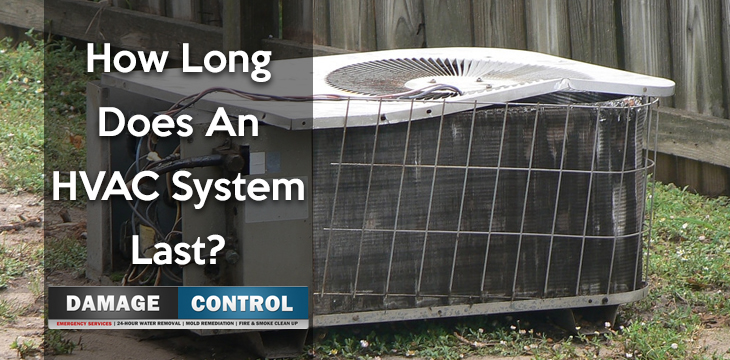When you are investing thousands of dollars in a new HVAC system for your home, you are hoping that it will stand the test of time and work well for you for years to come. Most of the time how long your HVAC system will last will depend on you keeping it well maintained and use it correctly. The best thing you can do from the beginning is to make sure you know exactly how it works and what kind of maintenance needs to be done and how often.
If you buy a new HVAC system and have it installed by a professional, then they should be able to provide you with most of the information you need about the specific unit you are installing. Combine that with the instruction manual that should come with it, and chances are your new heat and air unit will hold up just as it's supposed to.
The normal life span of a HVAC unit can depend on many factors. You can usually expect the unit as a whole to last between 15 to 25 years. Some parts of the unit may play out or need repair before other parts.
These HVAC Lifespans Are Just Estimates
Of course, you have to take into consideration that these life spans are only estimates. Depending on how often each part of the unit is being used, one part could go out sooner than its expected life span. The climate where you live can be a main factor. If you live where the weather is hot most of the year, then you will be using the air conditioner more than the heating system. If you live in a coastal area close to the sea, the salty air can cause corrosion in an air conditioner and make it go out prematurely in 7-10 years.
When you live in a climate that is cold much of the year, the heating system will be in use more than your air conditioning. Inefficient fuel can cause problems for a furnace. Heat pumps can also be affected by salty air near a coastline and go out in a little as 7-10 years.
How To Extend Your HVAC System Lifespan
Even though the above lifespans are just estimates, you can get the most life out of your system by simply taking care of it better than most people do. The system will age and become very inefficient energywise if it's properly maintained. Here are a few ways that you can make your HVAC system last longer than most.
Make Sure Windows & Doors Are Sealed
It is always important to make sure the windows and doors of your home are not open or even leaking air when any part of your HVAC system is running. This can put a strain on the heating or air conditioner. It will make either part run harder in order to maintain the temperature your thermostat is set at. It will also cause your energy bill to be higher.
Get An HVAC Tune Up Once Per Year
Getting your HVAC tuned up should happen at least once per year, twice if you have two different systems, such as having both an air conditioner and a furnace. You should ideally schedule your tuneups in the spring and fall when the weather isn't extremely hot or cold, so if you find a problem, you can take care of it before the weather changes for the worse.
HVAC tune ups are pretty all inclusive, so you'll end up getting an inspection, cleaning of your condenser coils, refrigerant levels topped off if necessary, and checking the heat system for damage.
Have Your Ductwork Cleaned
Always have your duct work cleaned as recommended if you have it. You can hire a professional to clean your ducts You can even clean your duct work yourself, although it might not be as effective as professional can achieve. You should have your unit serviced at least once a year to make sure all of the parts are in good working order. This can help you avoid a breakdown of any specific part during very hot or very cold weather.
Use Your HVAC's “Auto” Setting
Your system may have controls that you don't understand how to use properly. The “auto” setting is one that is often misunderstood by homeowners as the unit will only run when the temperature is either warmer or cooler than what the unit is set to maintain, but this isn't really true. “Auto” tells your system to only run the fan when the system is actually heating or cooling your home. Your air filter won't clog up as often and your system won't work as hard if you leave it set to this.
Get A Smart Thermostat For Your HVAC
A smart thermostat is an up and coming upgrade for homes that can drastically change your heating and cooling bill. It can be controlled from your smartphone or your tablet and can be easily programmed to operate on a schedule. Some units can learn your heating and cooling habits and can be set to change settings on its own for you.
As an HVAC system ages over the years, many people will replace them with a newer unit sooner rather than later. This is because as the unit ages, it can become less efficient and can give you a higher energy bill when you use it. However, with proper care and maintenance your HVAC system should last you anywhere from 10 to 20 years or more.

